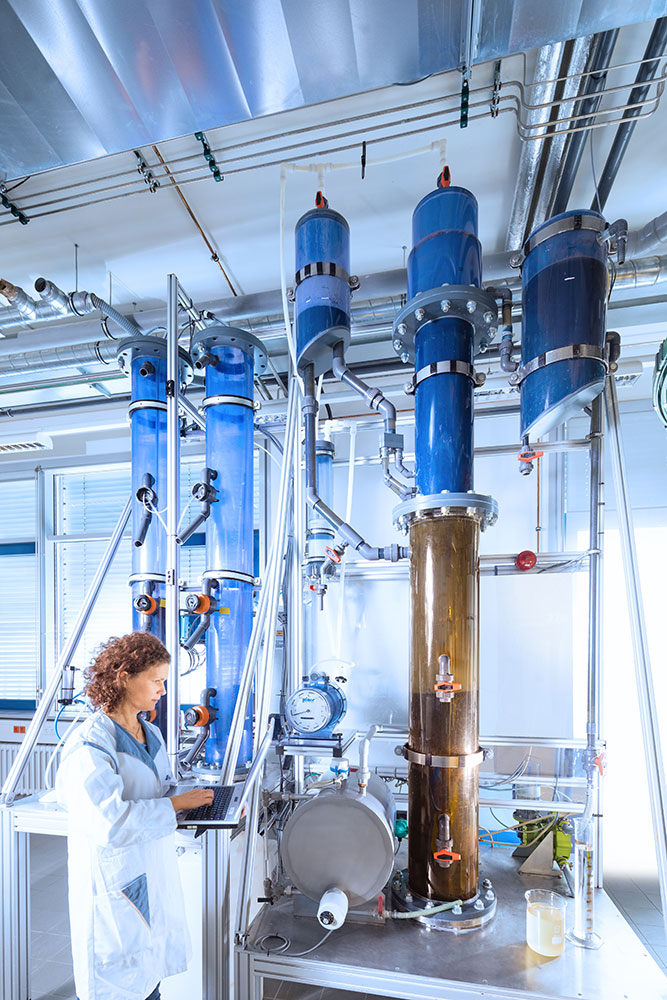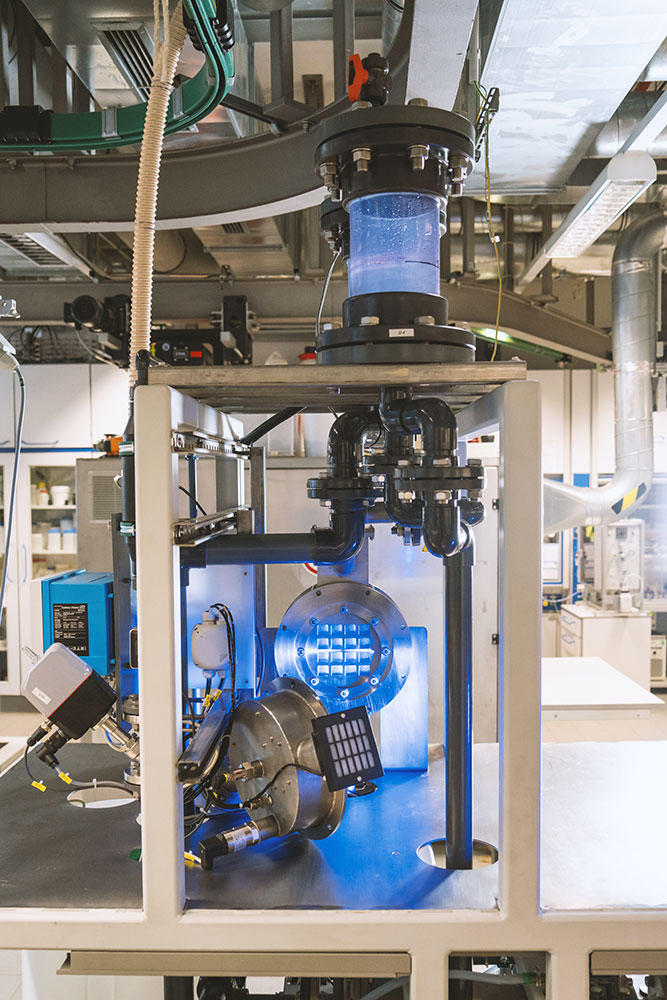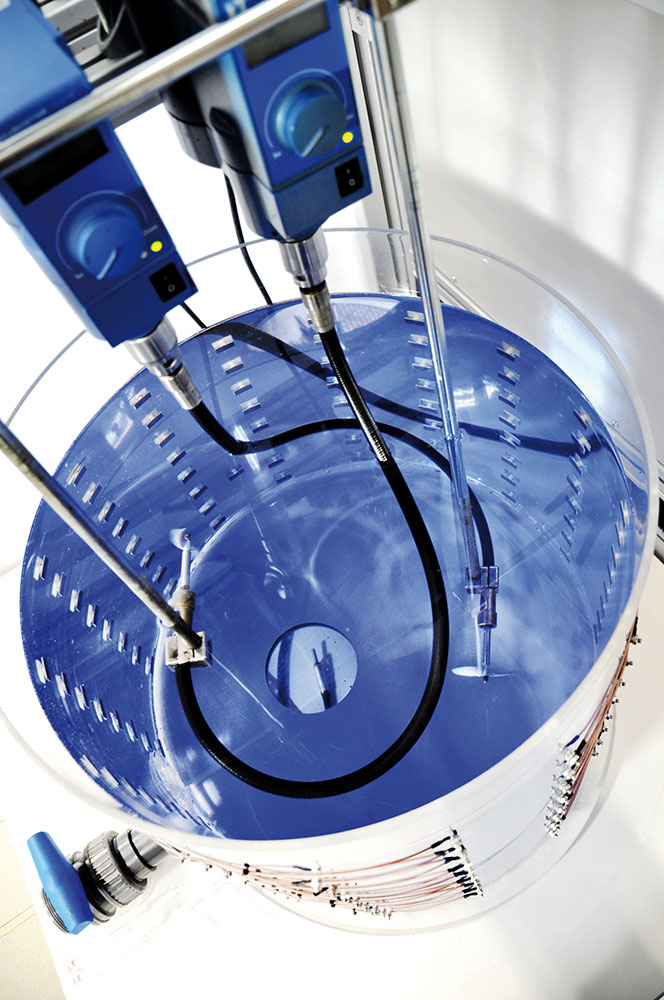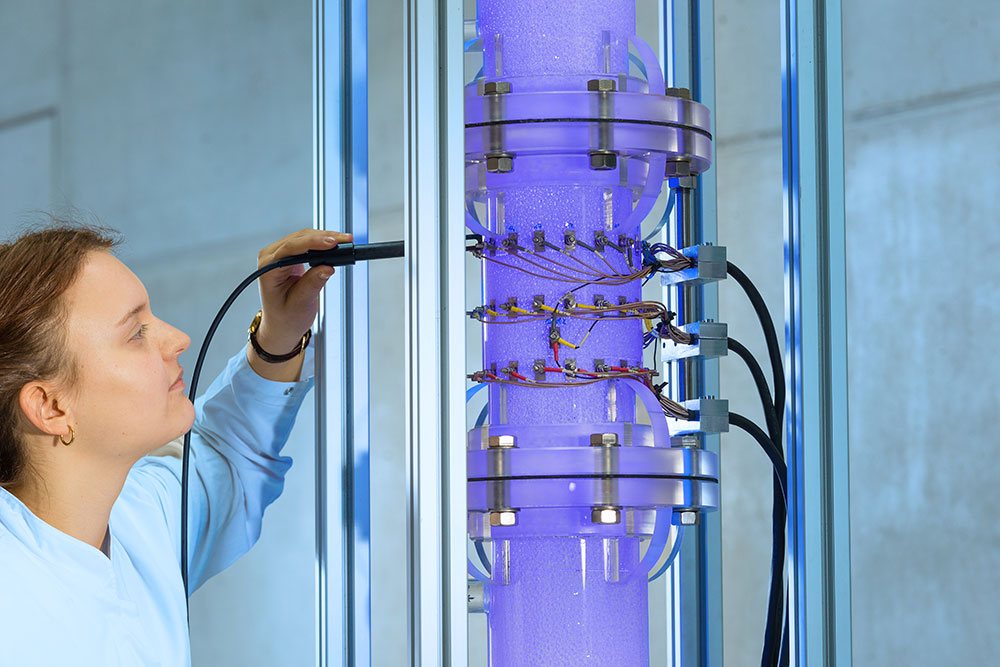

In the working group we develop, test and optimize novel processes, integrated reactor systems as well as components for the treatment of wastewater, in particular for industrial process water. Our focus is on the development of innovative hybrid processes, combining technologies based on functionalized membranes and electrochemical and photocatalytic oxidation processes with conventional processes (e.g., aerobic or anaerobic treatment) in an application-specific manner. In practice, it is often necessary to couple newly developed technologies to find a tailored, technically and economically viable solution for specific tasks of process water or wastewater treatment for industrial customers or for applications in the municipal environment. With targeted process combinations, even difficult-to-treat ingredients can be systematically degraded in centralized and decentralized plants.
As a result of the increasing scarcity of resources, we are increasingly working on issues relating to the efficient, economic recovery of special water constituents and resources (e.g., nutrient recycling, battery recycling). In addition, we are also researching solutions for the removal of persistent micropollutants, such as pharmaceutical and chemical residues, which are present in very low concentrations (µg to ng per liter) but accumulate in aquatic cycles and thus damage them. With our process know-how and our competencies in material and component development, we have already been able to successfully handle promising joint projects.
Services offered
Consulting and process development to solve your water treatment challenges
- Situation, system and requirements analysis, metrologically supported by laboratory and special analytics
- Concept development for system solutions for the demand-oriented and economic treatment of wastewater and process water, their recycling and/or recovery of valuable materials
- Laboratory investigations and test series on a suitable scale (from "proof of principle" to pilot scale)
- Creation of process chains using conventional water treatment processes as well as novel technologies
- Feasibility studies for the integration of technologies into already existing process chains
- Design of separation processes from solids separation to the elimination of micropollutants

